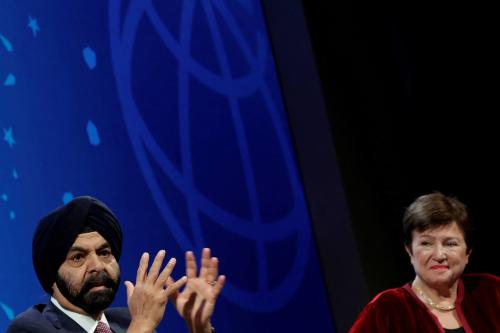Although the economic convulsions in East Asia have not taken on the proportions of a security crisis, it would be premature to dismiss the possibility. Reasons for concern abound.
In the first place, the economic woes besetting Asia’s developing countries may provoke internal political and social instability that could spill over into the international arena. Most worry-some is Indonesia. Even before the economic crisis, Indonesia politics was entering a delicate transition phase. Questions about President Suharto’s health had spurred popular discontent over authoritarian rule and, with it, speculation about democratization in a post-Suharto era. But before and orderly succession could be mapped out, the economic crisis toppled the main pillar of Suharto’s political legitimacy: successful economic development. Austerity measures imposed by the IMF as the condition for Indonesia’s financial bailout added to the explosive mix. After social unrest escalated into violent rioting in Jakarta in May, Suharto reluctantly stepped down and transferred the reins of government to B.J. Habibie, his chosen successor.



Commentary
Security Implications: The East Asian Economic Crisis
June 1, 1998